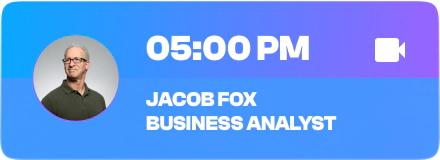Why are BPs so Important?
Buyer Personas, or BPs, are an incredibly powerful tool that allows a business to zero in on a very specific niche demographic. By having a very specific target in mind, they can attract far more initial customers than they would with broad strokes.
Even the largest of enterprises utilize BPs, an excellent case study for this is Amazon. Amazon started by selling books, which expanded, over time, to become one of the largest marketplaces for goods online in the world. How they accomplished this was by defining a very small demographic, individual imaginary people, and focusing their marketing strategy towards that imaginary ideal customer.
Imagine searching Amazon for shirts, the results will yield tens of thousands of shirts of all kinds; this isn’t very helpful because the amount of options is overwhelming, making the process of finding what you’re looking for extremely time and energy-consuming. If you filter the shirts by style, color, and size, you’ve narrowed your search down enough to reduce the results to a hundred or a dozen.
In the same fashion, marketing with broad strokes is overwhelming and will reduce the performance of your marketing campaign. By narrowing your focus to a specific BP, or group of BPs, you can speak directly to your customers and make the process of converting them to customers or clients much simpler.
Every time that you’ve conquered a BP, you can expand that niche a little more. It is a common mistake of small, medium, and new businesses to over-simplify or broad-stroke the BP creation process, which only makes their sales strategy harder to manage.
What Exactly is a BP?
A buyer persona is a very specific profile that defines an imaginary person within the scope of a business’s existing or potential customer base. This profile is usually something like the following:
Stephen Johnson
Age: 28 (26-34)
Profession: Accountant
Location: Philadelphia (any Major US City)
Core values: Professionalism, punctuality, financial independence, staying up to date with current events, providing for their family, mutual respect
Works in a corporate office within a large or international firm. Has graduated from university, as has his spouse or partner. Is thinking about the future, and prefers steady employment with specific hours. He wants to improve his performance while reducing the time it takes to accomplish his tasks. Works many late hours.
As you can see, the profile is rather specific (although simple for the sake of this publication) and omits any unnecessary information. While it’s possible to add hobbies, preferred television genres, and other details, it isn’t always necessary. For the sake of our example, Stephen would be a great candidate for trying a project management suite of automation tools. If a business was providing such tools and found that the majority of their customers were accountants, a profile of Stephen wouldn’t be very far from the mark.
How Do I Create a BP?
First, to create a BP, it’s important to answer questions about our imaginary person. The most efficient way to do this is with existing customer data; however, if you’re lacking this, it isn’t a problem. Let’s take a look at eight example questions:
- Who are they? What is their name? What do they do? How do they live?
- Where do they live? Where is this person generally found? A farmer will be in a rural area while an accountant is usually found in a city.
- What are their demographics? How old are they? This helps with understanding their personality, references they’ll understand, and their interests. Do they have a family? Is their spouse or partner also an MIT graduate?
- How do they entertain themselves? Do they watch sports? What genres of shows are they interested in? What kinds of books do they read? Do they play any sports or participate in physical activities (golf, soccer, etc.)? What other hobbies do you have?
- What are their current goals?
- What are their dreams?
- What keeps them up at night?
- Does their profession allow them to afford your service?
While number 8 may seem like an odd question to ask, it may be the most important and is typically ignored during the BP proofing stage. You sincerely want to only target those who can afford your goods and services. While customers may say that they are interested in your service or products, it’s best to dismiss this information until you see that demographic making purchases or becoming clients.
Several other questions you could ask while developing your BP, this is just an example to get you started.
After you’ve created your BP, it’s good practice to create a total of three in the same session while the brainstorming juices are pumping. The reason for this is that, while you may have created a very strong candidate, your newly created BP may end up resulting in a marketing flop. It might be that you misjudged the market, consumer interest in your services isn’t developed yet, or your competition has already scooped up these profiles by targeting them earlier. Whatever the case may be, by having a backup BP, you don’t need to waste any time getting back into the game.
In addition to having backup BPs, it might also be that your initial BP strategy went extremely well and it is now time to expand your strategy to include customers from other niche demographics. A properly defined BP may encompass tens of thousands or hundreds of thousands of individuals; however, one day you will have maximized your potential customer base from that pool. Before this, and a slow decline in leads, and inevitably conversions, it’s important to broaden your audience to attract other demographics.
BPs in Outbound Marketing Sales
Marketing is a term that encompasses a myriad of methods to reach out and speak to individuals that may need or have a strong desire for your goods and services. Often, we think of marketing as advertisements, billboards, and commercials, but this is just a fraction of the techniques available to any enterprise.
For example, outbound email marketing has a staggering ROI of 4,200%. However, as with any marketing strategy on any platform, without a laser-focused demographic, all campaigns fail. An email is a very personal thing and should feel as if the sender is speaking to them, not to them.
While a professional outbound B2B sales firm should be able to assist you in developing BPs and ICPs, ultimately these are tools that no business can afford to skip out on. Without BPs, marketing feels broad, tasteless, and impersonal.




